More Than Half A Century After His Assassination, Dr. King’s Legacy Lives On
On April 4, 1968, James Earl Ray shot and killed the civil rights leader while he stood on the balcony of his Memphis motel room.
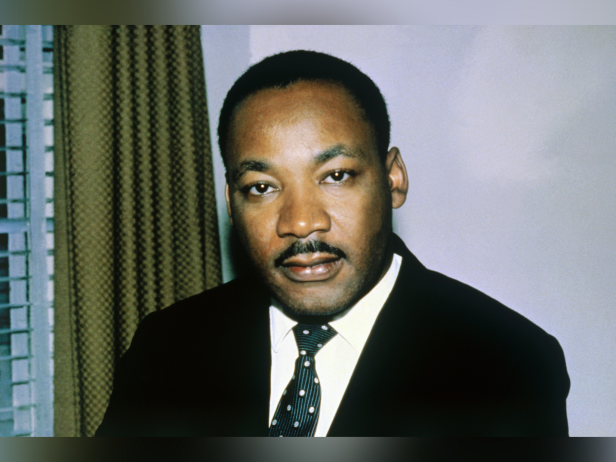
Getty Images
Famed civil rights leader and Baptist preacher Dr. Martin Luther King, Jr. was only 39 years old when he was assassinated on April 4, 1968.
More than five decades later, Dr. King’s legacy lives on through his children and grandchildren and in a myriad of other ways.
In 1968, a widowed Coretta Scott King founded The Martin Luther King, Jr. Center for Nonviolent Social Change (“The King Center”), a non-profit that works to create effective and lasting social change all over the world.
In 1983, Dr. King’s birthday became a U.S. federal holiday, according to the Constitution Center. In 2000, all 50 states had also made it a state government holiday. While Dr. King’s official birthday is January 15, 1929, Dr. King Day is celebrated on the third Monday in January, ever since its inception.
In 2011, during the 48th anniversary of the March on Washington, the Martin Luther King, Jr. Memorial was dedicated in West Potomac Park, next to the National Mall in Washington D.C. It covers four acres and includes the Stone of Hope, a granite statue of King, according to the National Park Service.
According to a report by the United States Congress House Select Committee on Assassinations, King was shot shortly after 6 p.m. on April 4, 1968. He was standing on a balcony outside of his room at the Lorraine Motel in Memphis, Tennessee. He was pronounced dead an hour later at St. Joseph Hospital.
The bullet entered through King’s right cheek, smashed his jaw, then traveled down his spinal cord before lodging in his shoulder, Harlem World Magazine reported.
Ralph Abernathy, King’s friend and colleague, heard the shot from inside the motel room and ran to the balcony to find King on the floor.
"I walked over with Bernard to where he was lying, his breathing nothing more than prolonged shudders," Abernathy wrote in his autobiography, And the Walls Came Tumbling Down. "The breaths came farther and farther apart. Then, a pause came that lengthened until I knew it would never end."
King and Abernathy, along with other members of Southern Christian Leadership Conference, or SCLC, had traveled to Memphis to support a sanitation workers’ strike. On April 3, the day before his death, King gave a speech at the Mason Temple Church.
Some people believe King’s speech seemed to foreshadow his own untimely death.
“I’ve seen the promised land. I may not get there with you. But I want you to know tonight, that we, as a people, will get to the promised land. And I’m happy tonight. I’m not worried about anything. I’m not fearing any man. Mine eyes have seen the glory of the coming of the Lord,” King said.
Dallas Morning News reported King’s last words were a request to jazz musician Ben Branch to play "Take My Hand, Precious Lord" at their meeting later that night. He reportedly told Branch, "Man, I tell you, tonight I want that song. I mean, I want you to play it pretty tonight, play it pretty."
The culprit was then 40-year-old James Earl Ray.
A year before he killed King, Ray escaped from the Missouri State Penitentiary, where he was serving 20 years for several robberies, according to the Atlanta Journal-Constitution.
NPR reported that Ray checked into a cheap motel across from the Lorraine, where Dr. King was staying. He paid for a week’s stay. While there was no direct line of sight from Ray’s room to King’s balcony, police would later discover Ray used a view from a communal hall bathroom to do the deed.
While Memphis arrived immediately on the scene, Ray was able to slip away unnoticed. He took FBI on a 2-month long manhunt before he was arrested in London on June 8, 1968. According to the BBC, Ray had fled the United States after killing King and was stopped at the Heathrow Airport, trying to board a flight to Brussels.
Ray was charged with possession of a forged passport and having a firearm without a permit. Ray was extradited to the United States where he faced charges of killing Dr. Martin Luther King, Jr. on April 4 of that year.
Ray confessed to the shooting, but he changed his story three days later, according to the Journal. He claimed a man named Raoul was the person who killed King but no there was no proof of this happening.
Ray eventually pleaded guilty to King’s murder and was sentenced to 99 years in prison. Ray died from liver disease and kidney failure on April 23, 1998.
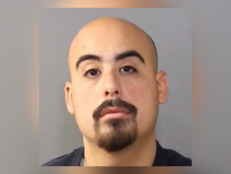

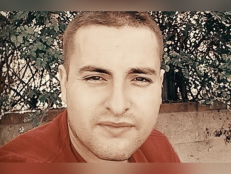
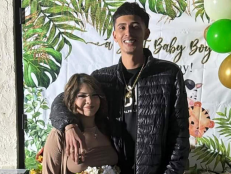


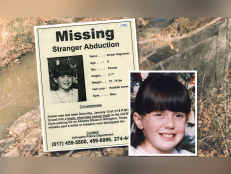

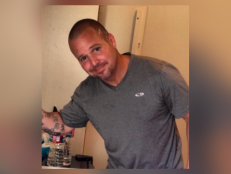
![Stacy Arthur [left] and James "Jim" Arthur [right] pictured smiling.](http://investigationdiscovery.sndimg.com/content/dam/images/investigationdiscovery/crimefeed/legacy/2023/01/the-playboy-murders-S1-E1-all-that-glitters.png.rend.hgtvcom.231.174.suffix/1673991794237.png)